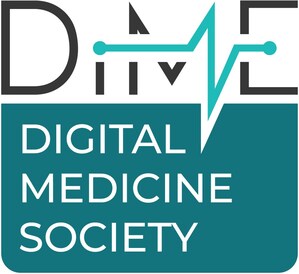
Core sleep measures and resources will help transform sleep research and care to advance the treatment of multiple disease areas
BOSTON, April 24, 2024 /PRNewswire/ -- Today, the Digital Health Measurement Collaborative Community (DATAcc) by the Digital Medicine Society (DiMe) released a core set of digital measures and resources for sleep. Together, these will increase the availability of high-quality, standardized, and transparent sleep assessments in a natural environment and transform research and care to advance overall population health. The core digital measures set and resources were developed by a cross-disciplinary group of experts designed to maintain broad applicability across research, care, and multiple disease areas.
As a community, we have just scratched the surface of sleep measurement's potential in identifying and treating a wide range of diseases and health conditions. Better sleep means better health, and disrupted sleep can indicate or cause chronic conditions ranging from primary sleep disorders to mental health conditions to Parkinson's Disease to Women's health to cardiac conditions and more. Today, the most common way to measure sleep requires the evaluation of a patient in a sleep lab where the environment is unfamiliar, the equipment is uncomfortable, and the routine is anything but normal. Using DATAcc's new core digital measures allows us to move measurement to the routine and comfort of one's bedroom, resulting in greater access to measurement, lower costs of studies, and more representative readings due to the natural sleep environment - meaning better interventions and remedies for all.
"Sleep science is key to unlocking new drugs and therapies across many disease areas and improving lives, but defining digitally derived measures of sleep requires a significant amount of measurement science, as it is a complex and challenging task," said DiMe CEO Jennifer Goldsack. "The core digital measures of sleep and accompanying resources now make it more accessible than ever before to incorporate sleep data into trials and care plans where sleep was previously inaccessible. With these resources, the clinical and research communities can use the new, digital generation of low-friction tools to improve our understanding of the relationship between sleep, health, and disease; improve the way we care for people with all manner of sleep disorders; and develop new therapies based on a deeper knowledge of previously unidentifiable connections between sleep and disease areas."
"DiMe Sleep Project provided Bayer with a unique opportunity to delve deeply into this crucial aspect of human health and the ramifications of poor sleep on patients with numerous diseases," added Michael Kremliovsky. Sr. Director of Medical Devices & eHealth, Bayer. "Collaboration among clinicians, government agencies, technology providers, and our peers in the pharmaceutical industry is instrumental in establishing a shared framework for advancing innovative clinical measures of sleep. Our goal is to accelerate the translation of this research into tangible health benefits for patients and to transform sleep research and patient care."
Participating in the development of the Core Measures of Sleep and accompanying resources were project partners: Bayer, Boston University, Defense Innovation Unit, Duke University, Eli Lilly & Company, GSK, Jazz Pharmaceuticals, National Sleep Foundation, NextSense, Sage Bionetworks, Sage Therapeutics, Takeda, TC Demiroglu Bilim University, UZ Leuven, US Department of Veterans Affairs and digital solutions collaborators: Activinsights, Beacon Biosignals, Biostrap, Byteflies, Dreem, Google, Ouraring, Primasum, Sleep Number, Softmatter, TNO, and VivoSense.
DATAcc by DiMe continues to drive the industry on digital endpoints. In addition to the core measures and over 15 new resources, the project team also added sleep digital measurement products to the Library of Digital Measurement Products. This open-access repository now serves as a one-stop-shop for high-quality digital clinical measures, measurement tools, and datasets to use in research and care for four key areas: sleep, Alzheimer's disease and related dementias (ADRD), physical activity (PA), and Parkinson's disease (PD).
Additionally, a recent study conducted in partnership with Tufts Center for the Study of Drug Development and leaders from J&J, Roche and Genentech, UCB, Bayer, Takeda, and Mindmed shows evidence of significant cost reductions and financial benefits tied to leveraging digital endpoints in trials. DiMe will launch a new project to support innovators across the field to invest in digital endpoints and advance their broad adoption and scale in clinical research. To learn more, click here.
About the Digital Medicine Society: DiMe is a global non-profit and the professional home for all members of the digital medicine community. Together, we tackle the toughest digital medicine challenges, develop clinical-quality resources on a technology timeline, and deliver these actionable resources to the field via open-source channels and educational programs.
About DATAcc by DiMe: The Digital Health Measurement Collaborative Community (DATAcc) by the Digital Medicine Society (DiMe) is a collaborative community with the FDA's Center for Devices and Radiological Health. We provide a forum for collaboration where partners and experts from across the digital health field work to advance the use of digital health measures in research to improve lives.
Media Contact: Carla English, [email protected]
SOURCE Digital Medicine Society (DiMe)







Share this article